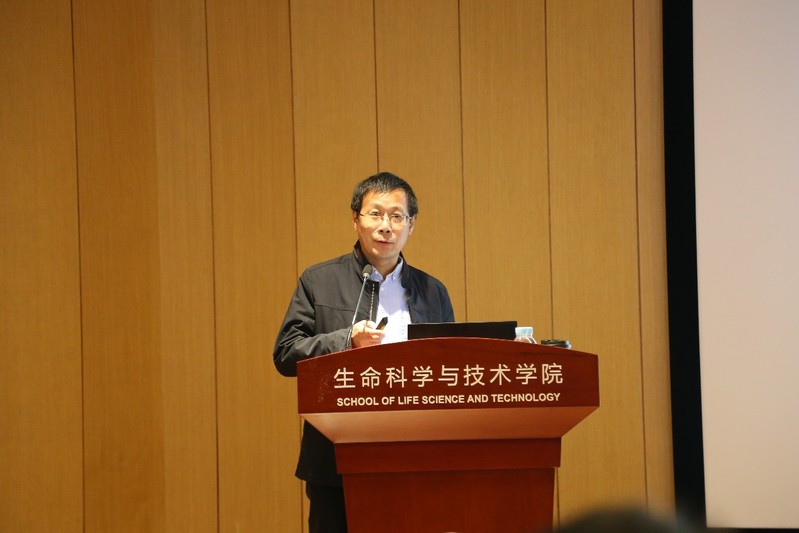Invited by SLST, Professor Guanghui Wang from Soochow University visited ShanghaiTech and gave a lecture entitled “Neurodegeneration induced by abnormal accumulation of amyotrophic lateral sclerosis (ALS)-related proteins” on November 19th, 2021.
Professor Wang’s research interests are focused on the mechanism of neurodegenerative disease-related proteins, and the interconnection between neurodegenerative diseases and neuroinflammation. His laboratory did a series of work related to the ALS mechanism and has published more than 60 papers in this field.Amyotrophic lateral sclerosis (ALS) is a fatal neurodegenerative disease that is characterized by selective loss of motor neurons in brain and spinal cord. Multiple genetic factors have been identified to be associated with ALS, including TDP-43, FUS, OPTN and C9ORF72. TDP-43 was identified as a major protein that is tightly associated with the pathogenesis in ALS, frontotemporal lobar degeneration (FTLD), and other neurodegenerative disease, in which TDP-43-positive cytoplasmic aggregates are presented in diseased brains. Professor Wang’s group found that loss of TDP-43 strongly induced a nuclear translocation of TFEB, the master regulator of lysosomal biogenesis and autophagy, through targeting the mTORC1 key component raptor. Meanwhile, loss of TDP-43 also impaired the fusion of autophagosomes with lysosomes through dynactin 1 downregulation, leading to the accumulation of immature autophagic vesicles. By using the Drosophila model with depletion of TDP-43, the inhibition of mTORC1 signaling by rapamycin treatment aggravated the neurodegenerative phenotype, whereas activation of mTORC1 signaling by PA treatment ameliorated the neurodegenerative phenotype, suggesting that impaired mTORC1 signaling may contribute to TDP-43-mediated protein aggregation and neurodegeneration.
The talk was followed by an extensive and thorough discussion. After that, Professor Wang had 1 on 1 meetings with several professors.
[Guanghui Wang]
Dr. Guanghui Wang received his Ph.D. degree at the University of Tokyo in 2001 and had a postdoctoral training at the University of Iowa from 2001 to 2003. He is a professor in the Department of Neurobiology at the University of Science and Technology of China from 2003 to 2011 and a professor in the Department of Pharmacology at Soochow University since 2011.



